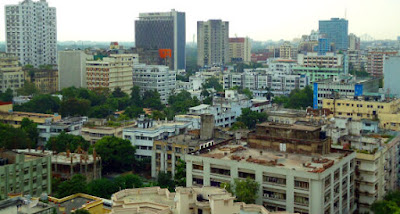Holding of property by a trustee involves various obligations and duties on the parties to a trust deed and these are enumerated in the Indian Trust Act 1882, which regulates the formation, and function of the trusts, powers and duties of trusties in dealing with trust properties.
Parties to a Trust
Trust is an obligation attached to the property thereby indicating how the property is to be used and who are the beneficiaries of the trust Property. It is an agreement between the Author of the Trust and the Trustee i.e. the manager of the trust property and the owner of the trust property. A trust may be formed by any person competent to contract, or with the permission of the court by a minor or on behalf of minor. A trust consists of more than one person that is at least two persons. The person that is the owner of the property, who reposes the confidence in another to manage the property is called author of the Trust or a settler. The person who manages the property as per the directions of the author of the trust is a trustee.
Both the parties, i.e. the author of the Trust, and the trustee are parties to the document called a trust deed, which defines the objectives and functions of the Trust. The institution is called the Trust. Apart from the author of the Trust, and the Trustee, the third party who is entitled to the benefits is called the beneficiary, who is not a party to the Trust Deed. The beneficiary has the right to insist that the trust property can be used for their benefits although they are not a party to the said trust deed. Any person capable of holding the property can be trustee but not the government of India. Likewise a government servant cannot be a trustee of mosque, temple, church or other religious institutions.
Ingredients of a Trust:
The important ingredients of a trust are - the objectives must be certain, the beneficiaries must be certain and clear and definition of the trust property must be clear and identifiable. The trust cannot be created orally, must be in writing duly signed by the Author and it can also be created by a Will. The Trusts are of many types. A private trust, where the beneficiaries are the legal heirs of the author, or a group of individual. A public trust is one where the beneficiaries are whole lot of public. The trust may be partly public and partly private. A charitable trust is created for relief, advancement of education, religion and other purposes beneficial to the community at large.
A trust cannot be created for the following purposes
1. Purpose, which is forbidden by law.
2. The purpose if permitted would defeat the provisions of law.
3. Fraudulent purpose.
4. Involves or implies in injury to the person, property of another.
5. The court regards the purpose as immoral or opposed to the public policy.
Creation of Trust:
A trust may be created only by a non-testamentary document that is a Trust Deed. The Trust Deed is compulsorily registerable under section 17(b) of Indian Registration Act 1908. The stamp duty payable on Trust Deed is governed by the Indian Stamp Act 1899, and falls under the powers of the States hence the stamp duty varies from State to State. It is created by a deed, it is to be registered if the value-exceeds Rs. 100. The trust act does not apply to public or private religions endowments. Section 18 of Transfer of Property Act 1882 relaxes all restrictions, in case of properties transferred for benefit of public like advancement of knowledge, religion, commerce, health and other allied objectives. A trustee cannot delegate his duties to another, except clerical duties and must have the final control over such delegation.
Bailment and Trust:
Often bailment and trust are confused. In bailment, there is delivery of goods from one person to another person for some purpose and on completion of such purpose; the goods have to be returned. In case of Trust, the property is transferred in favour of Trustee for the benefit of another person. In bailment, the person who received the goods is not the legal owner, but the trustee is a legal owner of the property.
Rights and obligations of Trustee:
The duties of the Trustee shall be well defined; he should comply with the terms of the Trust Deed, as per the directions of the author of the trust. He has to get acquainted with the property of the Trust and take required care about the genuinety and recoverability of the investments of the Trust money. The Trustee should, protect the title of the Trust property, if necessary by instituting legal proceedings. He should not set up any title adverse to the beneficiary.
He has to exercise proper care and be impartial and should prevent wastage and convert any perishable property to permanent or profitable in nature. He has to maintain proper accounts and adopt proper investment strategies. The trustees cannot commit any breach of trust, cannot set off the loss occurred because of breach of trust in one portion of the trust property against profit of another portion of trust property. When a breach of trust is committed by one trustee, all the trustees are liable to the beneficiary for the whole loss sustained. Like-wise, the trustee has certain rights, like possession of the trust deed, title deeds of the trust property, reimbursement of expenses, right to settlement of accounts, right to seek the opinion of the court.
Maintenance of Trust Properties
The trustee may lease the Trust property for a period not exceeding 21 years without the permission of the court, may sell the property in lots, by public auction, or by a private contract. He may also sell under special conditions, and buy and resell. He has powers to make the investment of the trust property, which must be in securities listed in trust act. Any variations in investment other than listed securities must be with the written consent of the beneficiary.
He may apply the property of the minor for maintenance of minor with proper care and discretion. After he accepts a trust he cannot renounce it except with the permission of the court, or with the consent of all the beneficiaries. Trust property cannot be used for his own benefit, and any benefit must be transferred to the trust. It is to be noted that, the trustee cannot purchase the trust property in respect of which he is trustee for sale. Even his agents cannot buy the same. Further, trustee or his agent, cannot buy the beneficiaries interest and cannot be a mortgagee, lessee of the trust property without court permission. Similarly co-trustees cannot lend among themselves. If trustee wrongfully sells the trust property, the beneficiaries have a right to follow to so long it is traced notwithstanding the intermediate ownership except in case of bonafide sale for value without the notice of the trust.
For More Information:






